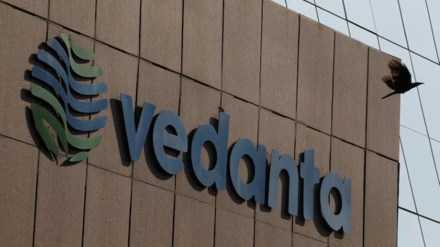By Dhanendra Kumar
As memorieS of the Hindenburg attack on Adani fades away, another American short-seller, Viceroy Research, has attacked Vedanta Resource and its Indian group firms, Vedanta Ltd. and Hindustan Zinc. The short-seller has made allegations and claims, including those relating to Vedanta’s financial structure.
The Viceroy report raises eyebrows as it came a day before the annual general meeting of Vedanta Ltd. In a prompt rebuttal, the company dismissed it as “a malicious combination of selective misinformation and baseless allegations to discredit the group”. Terming the report as “false propaganda”, it said, “The timing of the report is suspect and could be to undermine the forthcoming corporate initiatives.”
Vedanta has proposed a demerger that will result in four independent and pure-play entities across aluminium, iron and steel, power, and oil and gas. Vedanta Ltd will have the base metals as well as certain other existing and new businesses.
Incidentally, Vedanta Group is a global leader in critical minerals, transition metals, energy, and technology, with operations spanning India, South Africa, Namibia, Liberia, UAE, Saudi Arabia, Korea, Taiwan, and Japan. It is also the world’s largest integrated producer of zinc, the fourth-largest global producer of silver, and one of the top producers of aluminium.
Viceroy Research has a tainted history. In September 2021, South Africa’s Financial Sector Conduct Authority (FSCA) had fined Viceroy Research and its partners $50 million for false and damaging claims made in a 2018 report about Capitec Bank. The report, which accused Capitec of being a “loan shark”, caused a 25% drop in the bank’s share price. The FSCA found Viceroy failed to verify its assumptions, ignored contrary evidence, and didn’t give Capitec a chance to respond. It also identified a conflict of interest due to a profit-sharing arrangement with a short-selling client. The FSCA coordinated with the US Securities and Exchange Commission during its investigation and warned that it would hold analysts accountable for negligent public statements, regardless of jurisdiction. The FSCA found the statements made in the report were false, misleading, and deceptive, and that Viceroy failed to exercise reasonable diligence in verifying its claims. The FSCA determined that the report was published with the intent of maximisng financial gain through a profit-sharing arrangement with a short-seller client who stood to benefit from the ensuing drop in Capitec’s share price, which fell by over 23% on the day of publication.
While an appellate tribunal set the fine aside on jurisdictional grounds, it confirmed that Viceroy Research was paid to produce its damaging report on Capitec. According to the tribunal’s findings, Viceroy had an agreement with hedge fund Oasis, under which it received a monthly retainer of $10,000 and was entitled to 12.5% of net profits made by Oasis on trades based on Viceroy’s reports.
In March 2023, concerns over the conduct and motivations of short-selling groups operating in UK markets reached the floor of the House of Commons, as British member of Parliament Liam Byrne called for a debate on the activities of Viceroy Research and its founder, Fraser Perring. During a session in March, the MP alleged Viceroy was operating in close coordination with Boatman Capital, the group that had previously targeted Babcock International—the defence contractor then tasked with overhauling the UK’s nuclear submarines.
Medical Properties Trust (MPT) filed a lawsuit in the US District Court for the Northern District of Alabama, accusing Viceroy Research and its partners Perring, Gabriel Bernarde, and Aiden Lau of carrying out a “short-and-distort” scheme to manipulate its stock price. According to the complaint, Viceroy took or aligned with short positions in MPT stock, published false and misleading reports, and amplified the claims on social media to influence investors. The campaign allegedly caused MPT’s stock to drop over 35%, led a counterparty to withdraw from a commercial deal, and forced MPT to increase physical security at its Birmingham headquarters. The case ultimately resulted in a settlement and dismissal last year. MPT announced on December 18 that it had reached a mutual settlement with Viceroy and its members, resolving the defamation lawsuit filed on March 30, 2023.
What makes the strategy of short-selling particularly concerning in emerging markets like India is the erosion of investor confidence. Large firms undergoing complex restructuring or transformation become easy targets. The Hindenburg-Adani saga, with its journey in the Supreme Court, and finally Hindenburg’s closure is still fresh in our memories.
Short-selling, which allows investors to sell a stock without owning it at the time, is a dangerous practice. Naked short-selling is banned, with the Securities and Exchange Board of India (Sebi) mandating investors to fulfil their obligation to deliver securities at the time of settlement. Sebi’s 2024 circular explicitly says only stock traded in the futures and options segment are eligible for short-selling. It is time regulations in this regard are circulated and tightened to calm investors and markets and allow corporates to continue with their permitted and legal corporate practices.
The writer is Chairman, Competition Advisory Services India LLP (COMPAD).
Disclaimer: Views expressed are personal and do not reflect the official position or policy of FinancialExpress.com. Reproducing this content without permission is prohibited.
